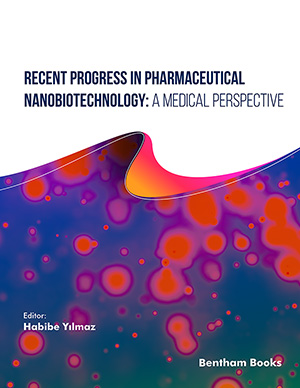Abstract
3-hydroxy-3-methylglutaryl coenzyme A (HMG-CoA) reductase inhibitors (also known as statins) are drugs active in the blockade of cholesterol synthesis and thus lowering cholesterol serum levels. Since their discovery, experimental evidence showed that statins strongly reduced atherogenesis and the risk of acute ischemic complications, such as acute myocardial infarction and stroke. More recently, direct anti-atherosclerotic effects of statins (independently of lipid profile improvement) have been also shown, suggesting new potential applications for these drugs in both primary and secondary prevention of acute cardiovascular events. Despite some controversies exist, the use of statins has been shown to improve both incidence and survival in acute ischemic stroke. The molecular mechanisms underlying statin-mediated clinical benefits were recently identified in the reduction of carotid plaque vulnerability and the increase of neuroprotection. In the present review, we will update evidence on the promising results with statins to improve ischemic stroke outcomes
Keywords: Atherosclerosis, inflammation, statin, stroke, treatment, neuroprotection, 3-hydroxy-3-methylglutaryl coenzyme A, lowering cholesterol serum levels, myocardial infarction, anti-atherosclerotic effects of statins, brain ischemic diseases, neurological dysfunction, reversible ischemic neurological deficit, magnetic resonance imaging (MRI)
Current Pharmaceutical Biotechnology
Title: Statins in the Treatment of Acute Ischemic Stroke
Volume: 13 Issue: 1
Author(s): Fabrizio Montecucco, Alessandra Quercioli, Marisol Mirabelli-Badenier, Giorgio Luciano Viviani and Francois Mach
Affiliation:
Keywords: Atherosclerosis, inflammation, statin, stroke, treatment, neuroprotection, 3-hydroxy-3-methylglutaryl coenzyme A, lowering cholesterol serum levels, myocardial infarction, anti-atherosclerotic effects of statins, brain ischemic diseases, neurological dysfunction, reversible ischemic neurological deficit, magnetic resonance imaging (MRI)
Abstract: 3-hydroxy-3-methylglutaryl coenzyme A (HMG-CoA) reductase inhibitors (also known as statins) are drugs active in the blockade of cholesterol synthesis and thus lowering cholesterol serum levels. Since their discovery, experimental evidence showed that statins strongly reduced atherogenesis and the risk of acute ischemic complications, such as acute myocardial infarction and stroke. More recently, direct anti-atherosclerotic effects of statins (independently of lipid profile improvement) have been also shown, suggesting new potential applications for these drugs in both primary and secondary prevention of acute cardiovascular events. Despite some controversies exist, the use of statins has been shown to improve both incidence and survival in acute ischemic stroke. The molecular mechanisms underlying statin-mediated clinical benefits were recently identified in the reduction of carotid plaque vulnerability and the increase of neuroprotection. In the present review, we will update evidence on the promising results with statins to improve ischemic stroke outcomes
Export Options
About this article
Cite this article as:
Montecucco Fabrizio, Quercioli Alessandra, Mirabelli-Badenier Marisol, Luciano Viviani Giorgio and Mach Francois, Statins in the Treatment of Acute Ischemic Stroke, Current Pharmaceutical Biotechnology 2012; 13 (1) . https://dx.doi.org/10.2174/138920112798868737
| DOI https://dx.doi.org/10.2174/138920112798868737 |
Print ISSN 1389-2010 |
| Publisher Name Bentham Science Publisher |
Online ISSN 1873-4316 |
Call for Papers in Thematic Issues
Artificial Intelligence in Bioinformatics
Bioinformatics is an interdisciplinary field that analyzes and explores biological data. This field combines biology and information system. Artificial Intelligence (AI) has attracted great attention as it tries to replicate human intelligence. It has become common technology for analyzing and solving complex data and problems and encompasses sub-fields of machine ...read more
 44
44
- Author Guidelines
- Graphical Abstracts
- Fabricating and Stating False Information
- Research Misconduct
- Post Publication Discussions and Corrections
- Publishing Ethics and Rectitude
- Increase Visibility of Your Article
- Archiving Policies
- Peer Review Workflow
- Order Your Article Before Print
- Promote Your Article
- Manuscript Transfer Facility
- Editorial Policies
- Allegations from Whistleblowers
Related Articles
-
Atypical Chemokine Receptors in Inflammatory Disease
Current Molecular Medicine Diabetes and Its Complications: Therapies Available, Anticipated and Aspired
Current Diabetes Reviews Diagnosis and Management of Diabetes and the Relationship of dGlucose to Kidney Function
Current Diabetes Reviews Fenofibrate and Metabolic Syndrome
Endocrine, Metabolic & Immune Disorders - Drug Targets COVID-19 Treatment Success After Repeat Courses of Azithromycin: A Report of Three Cases
Infectious Disorders - Drug Targets Adverse Cardiovascular Effects of Antirheumatic Drugs: Implications for Clinical Practice and Research
Current Pharmaceutical Design Pharmacological Applications of Antioxidants: Lights and Shadows
Current Drug Targets Cardiovascular Complications of Sleep Disorders: A Better Night’s Sleep for a Healthier Heart / From Bench to Bedside
Current Vascular Pharmacology Subject Index To Volume 2
Current Cardiology Reviews Healing the Diabetic Heart: Modulation of Cardiometabolic Syndrome through Peroxisome Proliferator Activated Receptors (PPARs)
Current Molecular Pharmacology Non Peptidic Urotensin II Antagonists: Perspectives for a New Class of Drugs
Cardiovascular & Hematological Agents in Medicinal Chemistry Randomized, Placebo Controlled Study of the Effects of Etoricoxib on Markers of Inflammation, Pain and Muscle Force After Eccentric Exercise
Clinical Anti-Inflammatory & Anti-Allergy Drugs (Discontinued) Glucose Blood Levels as a Therapeutic Target in Acute Ischaemic Stroke Setting
Current Topics in Medicinal Chemistry Targeting Dopaminergic System for Treating Nicotine Dependence
Central Nervous System Agents in Medicinal Chemistry Adipose Tissue: The Link Between Obesity and Cardiovascular Disease
Cardiovascular & Hematological Disorders-Drug Targets The Promise of Cholesteryl Ester Transfer Protein (CETP) Inhibition in the Treatment of Cardiovascular Disease
Current Pharmaceutical Design Integrating Pharmacogenetics for Assessment of Herb-Drug Interactions: Has the Time Come?
Current Pharmacogenomics and Personalized Medicine Role of Innate Immunity in Triggering and Tuning of Autoimmune Diabetes
Current Molecular Medicine The Metabolic Syndrome and Chronic Liver Disease
Current Pharmaceutical Design Imaging the Role of Inflammation in Mood and Anxiety-related Disorders
Current Neuropharmacology


























